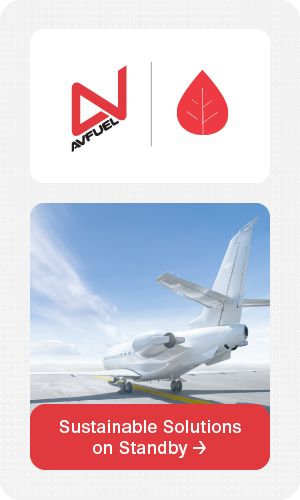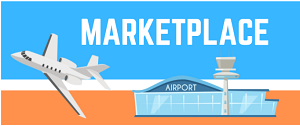In NATA’s latest webinar, NATA’s Senior Vice President Ryan Waguespack and special guests Don Chupp, president of Fireside Partners, and Dr. Katherine Meese, director of research at the Office of Wellness at University of Alabama Medicine examined new acute and chronic stressors affecting pilots and crews as the COVID-19 pandemic enters its second year.
“One of the things we’re really looking at, a year into the pandemic, is how this affects our crews and operations in relation to safety,” Waguespack says. “We can’t forget about the mental health aspect of these constant stressors: health concerns, volatility in the marketplace, changing expectations and protocols, and the other countless challenges of the past year. We’re not machines: we’re humans who have real worries and fears. As pilots, as leaders, as pivotal people within our organizations, we cannot overlook the mental health implications of operating in a pandemic.”
Waguespack invited Meese to lead the webinar because her expertise helping physicians and other health care professionals manage mental health and wellness, in the pandemic year and otherwise, has direct parallels for pilots and aviation professionals.
Meese agrees that her research investigating the neuroscience behind acute and chronic stress, as well as successful strategies for managing such stress, is easily applicable to the aviation industry.
“This year has brought so much prolonged uncertainty, which the brain processes differently than acute stress. In addition, the healthcare industry and the aviation industry are both what I call high-reliability occupations: we have to be preoccupied with a possibility of failure, and the cost of failure is very high. We also have a human component that has to be appropriately managed or devastating outcomes can occur,” Meese explains. “A really important part of managing that human component is ensuring that the human professional – our most important asset – is well taken care of, is functioning optimally, is keeping his or her brain in a place where it can make critical decisions under duress.”
Dr. Meese takes the comparison between healthcare and aviation even further. She sees hospitals go to great lengths to ensure their tools and machines are well maintained, but sometimes forget that doctors and nurses require the same level of attention. Aircraft maintenance, she says, offers a similar metaphor for framing the importance of taking care of our people in the aviation industry.
“You don’t just ignore a plane. You service it regularly, perform safety checks before every take off, and schedule routine maintenance and downtimes. I think that’s where we often miss the mark on the human element of our industries,” Meese says. “We forget that our most critical asset is the human asset, and then we’re surprised when things break. I believe it’s critical that we change our approach to that. What if we treated every pilot as well as we treat our aircraft? I think we would see a real difference.”
The NATA webinar offers aviation professionals a better understanding of the neuroscience behind stress management and shares proactive strategies that help optimize the brain for performance.
“A better understanding of our brains can help us take steps to maximize our performance, even under stress,” Meese says. “Luckily, through decades of research we have discovered what levers we can push or pull to hack our brains to allow them to function as well as possible. We can’t necessarily change a crisis, whether it’s the pandemic or other crises in the future, but there are ways to change our response to a crisis that will set us up for the best possible outcome, given the circumstances.”
The biggest mistake, Meese warns, is to create a stigma around mental health and wellness in the workplace, or to avoid it altogether.
“The culture in our industries typically avoids talking about mental health and wellbeing. We expect people to be tough, put on a brave face, and take care of their patients or their passengers and crew,” Meese says. “There’s a huge stigma around seeking help in our industries because we fear it will create difficulty with licensure, yet the cost that stigma and the cost of doing nothing about it can be absolutely devastating. I often ask people, ‘Would you rather have a clinician who’s severely depressed doing your surgery, or a clinician who’s actively and successfully managing their depression doing your surgery?’ I know what my answer would be, and it would be the same if we’re talking about a pilot instead of a doctor. In these industries that rely on highly-trained human professionals as the stopgap between a routine day and an absolute disaster, nothing is more important than making sure that piece of our systems is well maintained and functioning optimally. We can’t do that without a focus on individual wellbeing and mental health.”
To learn more, view the “Self-Care and Change Management Strategies for the Aviation Industry” webinar recording.






